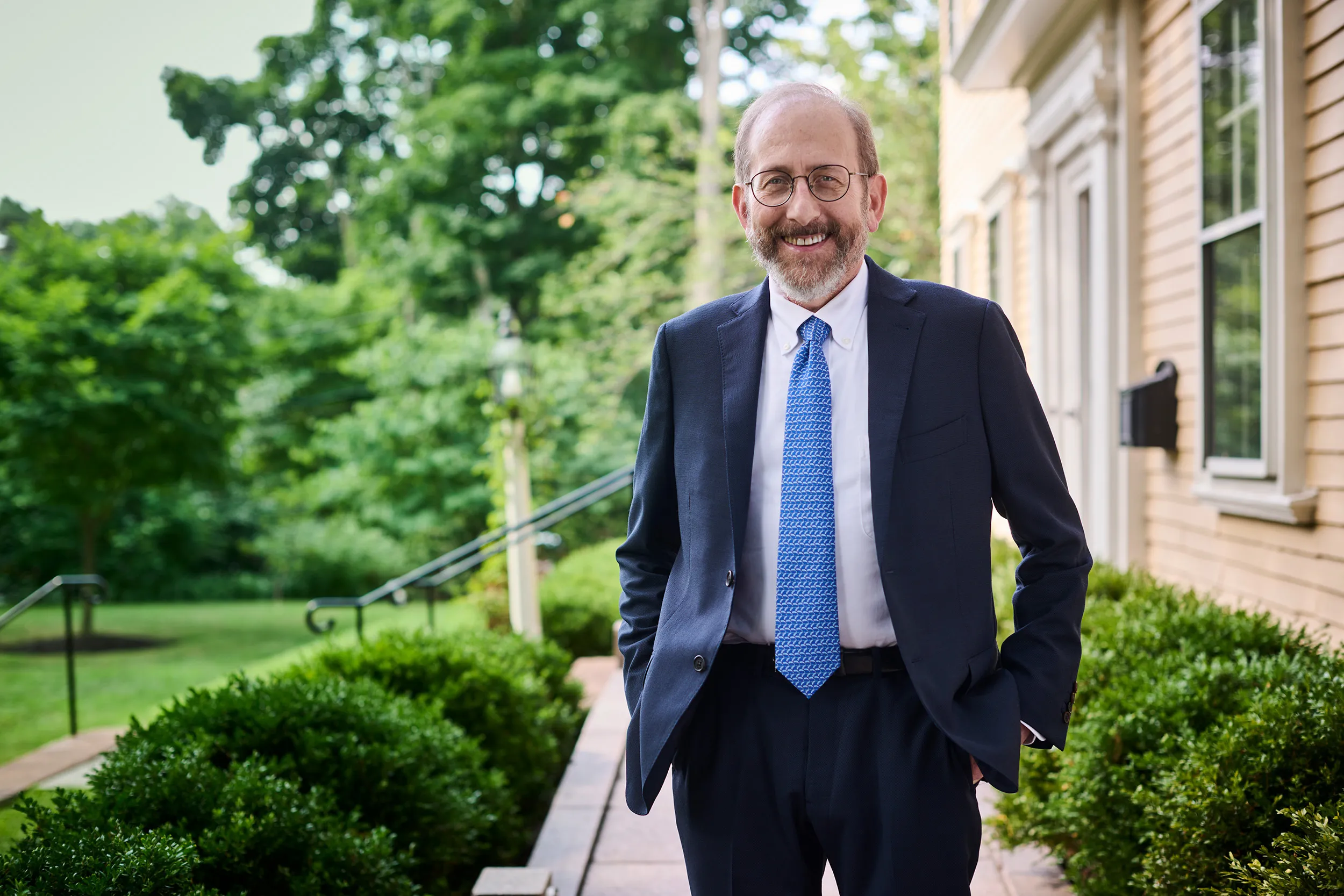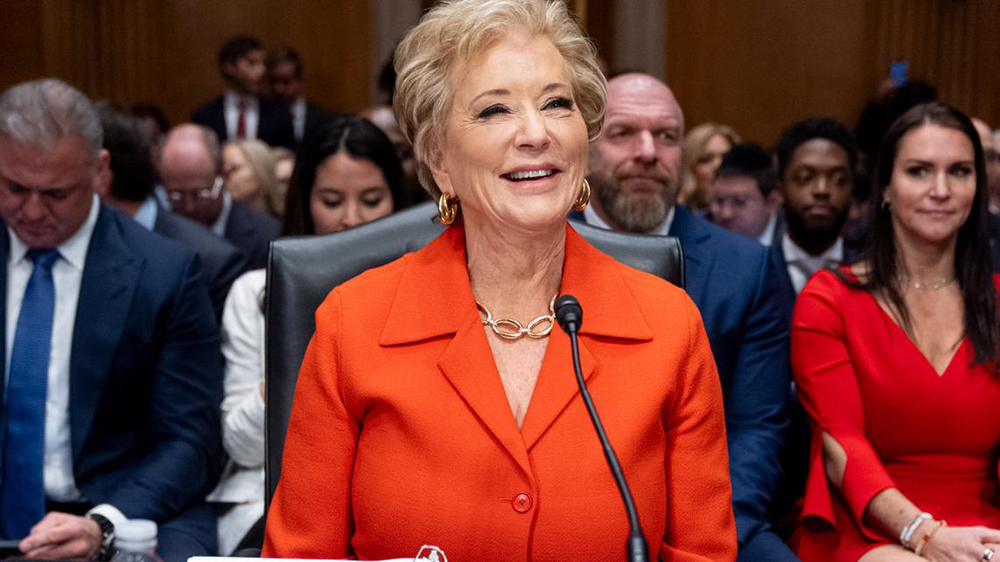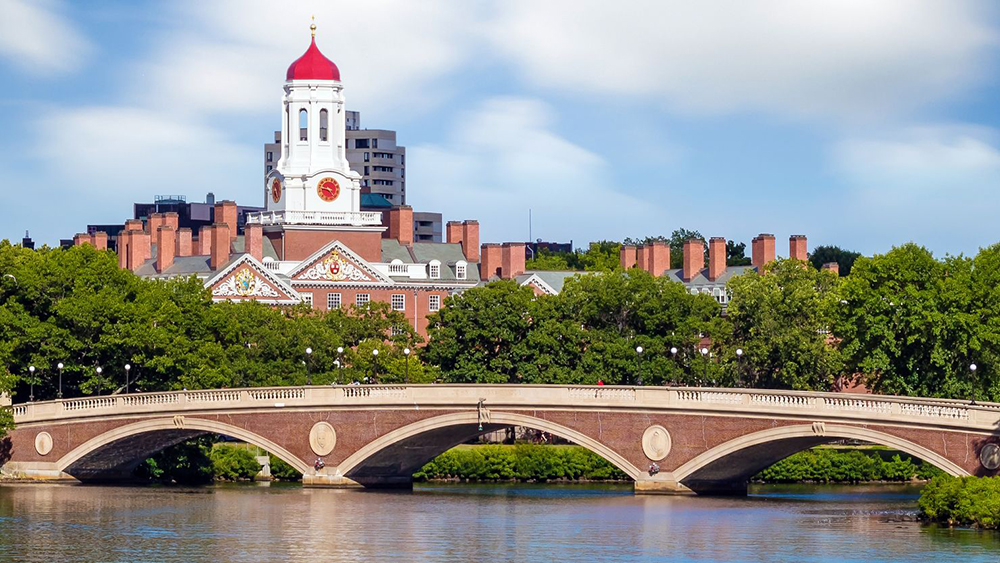|
Getting your Trinity Audio player ready...
|
By: Fern Sidman
The Trump administration has expanded its scrutiny of elite universities by initiating a comprehensive review of nearly $9 billion in federal grants and contracts to Harvard University, according to a report that appeared on Monday in The Wall Street Journal. This action comes as part of the administration’s broader investigation into how academic institutions have addressed anti-Semitism on their campuses.
The Wall Street Journal report indicated that the administration will examine $255.6 million in current contracts and $8.7 billion in grants distributed over multiple years. This funding extends beyond Harvard’s academic departments to include affiliated institutions, particularly Boston-area hospitals connected to the university.
It’s important to note that this action represents a review rather than an immediate cancellation of funds. According to the information provided in The Wall Street Journal report, Harvard joins Columbia University as the second major institution facing intensive federal scrutiny over anti-Semitism concerns.

According to The Wall Street Journal, Harvard was among 60 institutions contacted by the Education Department this month, warning of potential enforcement actions if they failed to adequately protect Jewish students. These concerns emerged following nationwide pro-Hamas protests that disrupted many campuses last year.
“Harvard has served as a symbol of the American Dream for generations – the pinnacle aspiration for students all over the world to work hard and earn admission to the storied institution,” said Secretary of Education Linda McMahon. She added: “Harvard’s failure to protect students on campus from anti-Semitic discrimination – all while promoting divisive ideologies over free inquiry – has put its reputation in serious jeopardy. Harvard can right these wrongs and restore itself to a campus dedicated to academic excellence and truth-seeking, where all students feel safe on its campus.”
“This administration has proven that we will take swift action to hold institutions accountable if they allow anti-Semitism to fester,” said Josh Gruenbaum, an official with the General Services Administration and member of the government’s recently formed anti-Semitism task force, as quoted by The Wall Street Journal. “We will not hesitate to act if Harvard fails to do so.”
President Trump has consistently expressed his intention to eliminate pernicious woke ideology from prestigious universities. This commitment has manifested in several recent actions, including the suspension of approximately $175 million in federal funding to the University of Pennsylvania over its decision to allow a transgender athlete to compete on the women’s swimming team, as was reported in The Wall Street Journal.
In response to the review, Harvard President Alan Garber emphasized the potentially devastating impact of funding cuts. In a letter to the Harvard community cited by The Wall Street Journal, Garber warned that the removal of federal funding would halt life-saving research.
“We fully embrace the important goal of combatting anti-Semitism, one of the most insidious forms of bigotry,” Garber wrote, according to The Wall Street Journal. “Urgent action and deep resolve are needed to address this serious problem that is growing across America and around the world.”
Harvard has spent months bracing for an unstable political future and potentially massive losses to its funding — especially after the Trump administration repeatedly threatened research funding, according to a report in The Harvard Crimson. President Garber announced a University-wide hiring freeze in early March, and the Faculty of Arts and Sciences issued budget guidance in February urging FAS leadership to keep spending flat in fiscal year 2026.
But Monday’s review puts Harvard squarely in the crosshairs of more targeted threats.
In a show of unity, more than 600 Harvard faculty signed a letter urging the University’s governing boards to “refuse to comply with unlawful demands that threaten academic freedom and university self-governance,” as was reported by The Harvard Crimson.
The federal anti-Semitism task force — which is investigating nine other schools, including Columbia — plans to visit Harvard’s campus but has not yet announced a date.
The Harvard review follows more severe action against Columbia University earlier this month, where the administration canceled $400 million in grants and contracts. The Wall Street Journal reported that Columbia subsequently agreed to implement a series of extensive changes demanded by the government as a prerequisite for negotiating the restoration of funding. The situation at Columbia escalated further when its interim president resigned after downplaying these mandated reforms in private faculty meetings, as reported by The Wall Street Journal.
Prior to her resignation, interim university president Katrina Armstrong privately assured faculty last weekend that Columbia does not intend to comply with several key conditions the federal government outlined in order for the school to regain access to $400 million in frozen federal funding.
As was reported by The Free Press last Tuesday, Armstrong made these statements during a private Zoom meeting with approximately 75 faculty members, directly contradicting the university’s public position. According to a transcript of the call obtained by The Free Press, Armstrong clearly stated that there would be “no change to masking” policies, “no change to our admissions procedures,” and no move to place the university’s controversial MESAAS department under academic receivership for at least five years—each of which were explicit demands made by the administration’s anti-Semitism task force.

In short, while Columbia has formally agreed to abide by the administration’s terms to combat anti-Semitism and restore federal funding, its top leadership appears to be assuring faculty behind closed doors that these conditions will not actually be implemented in full.
As The Free Press reported, the administration’s anti-Semitism task force issued a detailed roadmap outlining how Columbia could begin to rebuild trust with federal agencies and re-secure its funding.
The measures included adoption of the International Holocaust Remembrance Alliance (IHRA) definition of anti-Semitism, immediate reform of campus safety and discipline policies, transparency and accountability in how student protests are handled and placing the Middle Eastern, South Asian, and African Studies (MESAAS) department—long criticized for harboring radical anti-Israel sentiment—under academic receivership. The measures also include a reassessment of the university’s masking policies, which have been exploited to conceal identities during disruptive or violent protests as well as reforms to admissions processes that are biased against certain student groups.
In public statements, Columbia appeared to accept the conditions outlined in the administration’s letter. But The Free Press now reported that Armstrong’s private comments suggest otherwise, sparking concern from federal officials that the university is attempting to sidestep real compliance.
During the Zoom call, Armstrong reportedly reaffirmed her position that disciplinary actions on campus will remain independent and will not be centralized under the president’s office—despite that being another stated condition from the federal task force, according to the information provided in The Free Press report. “Discipline remains independent,” she told the faculty, according to the transcript, and “has not been moved to my office.”
The apparent contradiction between Armstrong’s private messaging and the university’s public commitment has drawn the attention of federal officials. A source close to the anti-Semitism task force told The Free Press that Columbia is risking the entire agreement: “Columbia should not test the administration’s resolve in holding them to every action they’ve agreed to take to protect their students and faculty. We expect full compliance and good faith negotiations if Columbia wants to have a productive relationship with the federal government.”
If Columbia is found to be acting in bad faith, the consequences could be dire—not only in terms of the lost funding, but also in triggering broader scrutiny of how elite universities are managing issues of campus anti-Semitism, ideological bias, and academic freedom.
According to the information contained in The Free Press report, Columbia is the first university to have federal funds suspended over anti-Semitism-related concerns, but it is far from the only one under investigation. The Trump administration is now reviewing over 60 colleges and universities nationwide.
The pressure on Columbia is intensifying. The Wall Street Journal reported this week that lawyers from the Department of Health and Human Services’ Office of Civil Rights will be visiting Columbia’s campus imminently to assess potential violations of federal civil rights laws.
This comes after 18 months of escalating unrest at Columbia, including building takeovers, classroom disruptions, student encampments, and even assaults on custodial staff, as reported by The Free Press. Jewish students have described the environment as hostile and unsafe.
Columbia University’s newly appointed acting president, Claire Shipman, is facing mounting scrutiny after a December 2023 text message surfaced in which she dismissed high-profile congressional hearings on campus anti-Semitism as “Capitol Hill nonsense.” The controversial remark, along with other private communications between top Columbia administrators, was disclosed in a sweeping 325-page report released by the Republican-led House Committee on Education and the Workforce, according to a report on Saturday in The New York Post.
Shipman, a former CNN White House correspondent and ex-wife of Obama-era press secretary Jay Carney, had served as co-chair of Columbia’s board of trustees prior to being elevated to acting president Friday night. She steps into the role following the resignation of Armstrong — the second leadership departure in less than a year amid the university’s ongoing struggle to address tensions surrounding pro-Hamas campus activism and anti-Semitism concerns.

According to the information provided in The New York Post report, Shipman’s now-public remarks came in the form of a text message sent on December 28, 2023, to then-Columbia President Minouche Shafik. “I do think we should think about unsuspending the groups before semester starts to take the wind out of that,” Shipman wrote, referring to student groups involved in campus protests against the war in Gaza. She also added, dismissively, “I thought we might escape the Capitol Hill nonsense,” in reference to the widely publicized hearings before the House Education Committee.
The hearings, held that same month, made national headlines after the presidents of Harvard University, the University of Pennsylvania, and MIT were grilled over whether calls for genocide against Jews would violate their institutions’ bullying and harassment policies, The New York Post reported. Their ambiguous answers — claiming that “it depends on the context” — triggered widespread backlash and ultimately led to the resignations of Harvard’s Claudine Gay and Penn’s Liz Magill.
The Columbia administration’s communications, which were obtained and published by the House Committee, showed a general tone of disdain and condescension toward federal lawmakers and their inquiry into campus anti-Semitism, as was indicated in The New York Post report. The committee’s report highlighted a series of leaked internal messages, including Shipman’s texts, which suggest that top university officials viewed the congressional hearings not as a serious investigation into hate speech and harassment, but rather as a political distraction.
On Tuesday, the Trump administration paused a staggering $210 million in federal funding to Princeton University as it launches a sweeping investigation into allegations of anti-Semitism on the Ivy League campus in New Jersey.
A senior Trump administration official told The Daily Caller, as cited by The New York Post, that “Princeton has perpetuated racist and anti-Semitic policies.” The official emphasized that this funding freeze does not signal the end of the probe, which remains ongoing.
This investigation forms part of a broader initiative led by President Trump’s Joint Task Force to Combat Anti-Semitism. This inter-agency body, which includes the Department of Education (DOE), the Department of Health and Human Services, and the General Services Administration, is leveraging Title VI of the Civil Rights Act to hold institutions financially accountable for enabling anti-Semitic behavior. The report in The New York Post indicated that Title VI prohibits federal funding to any institution found to be engaging in or tolerating discrimination on the basis of race, religion, national origin, or other protected categories.
Princeton is among 60 universities recently warned by the Department of Education’s Office for Civil Rights that federal funds could be at risk due to reports of anti-Semitic discrimination and harassment. Despite its endowment exceeding $34 billion, Princeton received a substantial $456 million in government grants and contracts last year, making the freeze a potentially powerful point of leverage.
The roots of the current probe trace back to a formal complaint filed in April 2024 by Zachary Marschall, editor-in-chief of the conservative watchdog publication Campus Reform. As reported by The New York Post, Marschall accused Princeton of failing to adequately respond to an anti-Israel demonstration held on October 25, 2023 — just weeks after the October 7 Hamas terrorist attack on Israel. The protest allegedly included inflammatory chants such as “Intifada” and “Brick by brick, wall by wall, apartheid has got to fall.”
Marschall, in his complaint, criticized the university’s response and warned that the rhetoric used by demonstrators “completely disregard[s] the atrocities Hamas has already committed and promises to commit in the future against the people of Israel, including raping, murdering, and kidnapping civilians.” These remarks, detailed in Campus Reform and cited by The New York Post, formed the basis for the DOE’s civil rights investigation.
In 2023, the Anti-Defamation League gave Princeton a failing grade (“F”) for its response to campus anti-Semitism, further highlighting the gravity of the allegations.
This intensifying federal scrutiny represents a watershed moment in the national debate over campus free speech, academic accountability, and the federal government’s role in safeguarding minority students — particularly in the wake of surging anti-Semitism following the Israel-Hamas conflict. The Trump administration’s aggressive use of funding as leverage could mark a new era in how Washington polices civil rights compliance in higher education.




